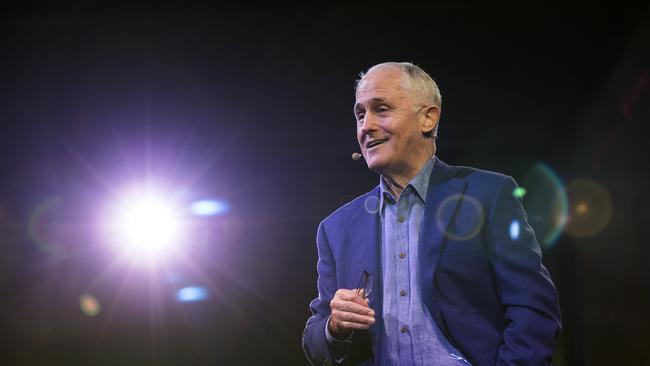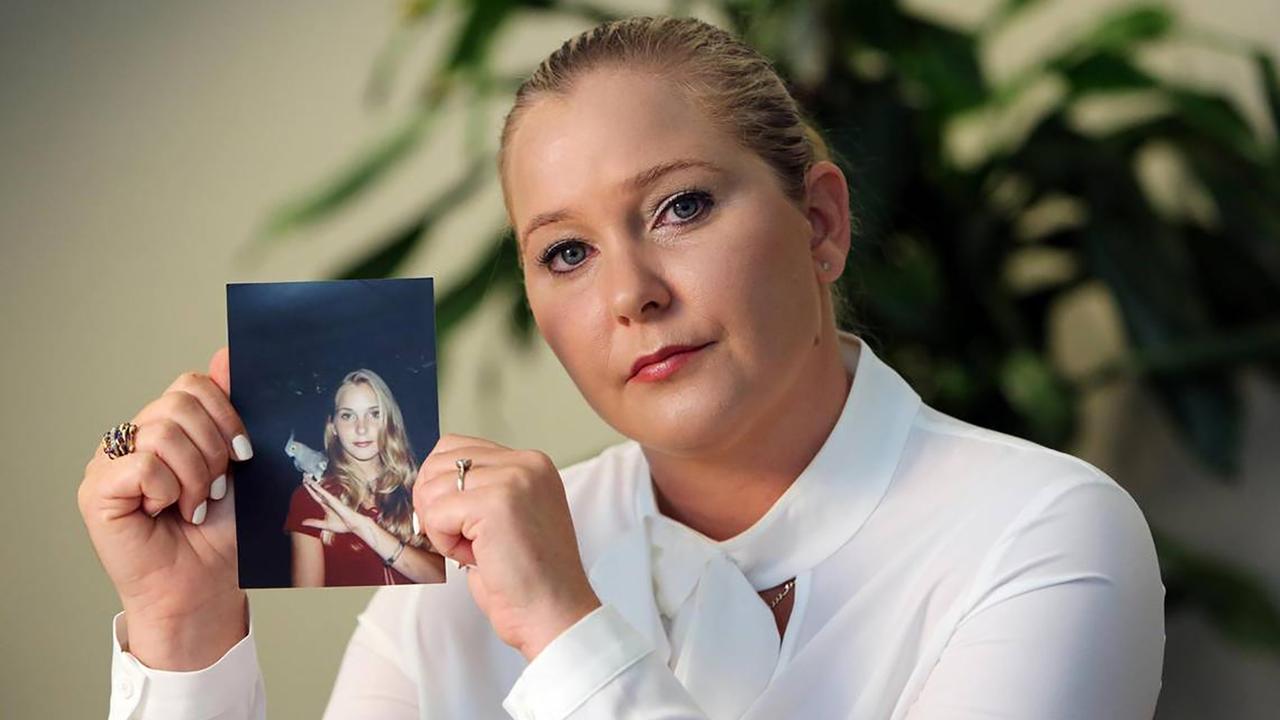Malcolm Turnbull just can’t let it go
Many prime ministers retire gracefully but some prefer delusion and vindictiveness.

Some Australian prime ministers handle the distress better than others. In recent times the standout success has been former Coalition leader John Howard, who adapted well to losing the election and his seat of Bennelong to Labor at the March 2007 election. By the time he published his autobiography Lazarus Rising in 2010, Howard was probably more popular than at any time in his long career.
Former Labor prime ministers Bob Hawke, Julia Gillard and Kevin Rudd used their political memoirs to settle old political scores. Hawke remained very popular during his final years, as he had been in office. And Gillard has a substantial fan club. Rudd seems to have had more difficulty in coping with his political demise.
Tony Abbott has had the good sense not to write memoirs at this stage. His gracious speech at the tribute dinner in his honour this month indicated he had accepted losing the prime ministership (in September 2015) and his seat of Warringah (in May this year) as well as could be expected.
Indeed, Abbott told the large and supportive audience that virtually all political careers ended in disappointment.
It is understood that Malcolm Turnbull has lodged his memoir with Hardie Grant Books pending publication early next year.
It remains to be seen whether they will resemble the bitterness found in Rudd’s two-volume memoir or the lighter touch achieved by Howard. Judging by Turnbull’s public comments since he was replaced by Scott Morrison as prime minister in August last year, it seems that there will be an attempt to settle some old scores.
Certainly this is the impression given by Turnbull when interviewed by his friend and former Liberal Party colleague Christopher Pyne on the Pyne Time podcast this week.
Asked whether the Coalition would have won the election in May if he had not lost the Liberal Party leadership, Turnbull responded: “Oh yeah. Absolutely. There’s not many people that doubt that.”
It is understandable why, in his continuing distress, Turnbull believes he would have defeated Bill Shorten’s Labor team. But the fact is many people, including former Liberal Party colleagues, doubt this — which is why Turnbull was removed as leader on August 24 last year. Put simply, Liberal Party parliamentarians wanted to win the election and most did not believe they could do so with him as leader.
The brutal facts are as follows. Under Turnbull’s leadership the Coalition lost 14 seats in the July 2016 election and retained majority government with the narrowest margin. Turnbull got a clear run in the campaign in that he was not undermined by Abbott or his supporters.
Moreover, the whole election strategy was devised by Turnbull as Niki Savva (broadly a Turnbull supporter) makes clear in her book Plots and Prayers (Scribe, 2019). This included an eight-week-long double-dissolution election with a positive, rather than negative, campaign.
The Coalition’s 2016 election campaign was the worst by an incumbent government in decades. By the time the parliament met after the election, Shorten had successfully framed Turnbull, presenting him as a multi-millionaire living in a harbourside mansion who was out of touch.
Shorten’s error was to believe the line he ran against Turnbull would work against Morrison. It could not — and it did not.
Morrison was a middle-class family man who, on becoming Prime Minister, moved from his suburban home into the official residences Kirribilli House and the Lodge.
Labor’s review of this year’s election campaign, chaired by Craig Emerson and Jay Weatherill, found that Turnbull’s replacement by Morrison “required careful consideration” but was “the subject of a cursory examination”. “When Morrison reframed the campaign around an evaluation of him versus Bill Shorten, the seriousness of this risk should have been identified, any strategy reviewed and, if necessary, adjusted,” the review’s report states. It didn’t happen. What Labor missed, post Turnbull, was the Coalition’s focus on winning seats in northern Tasmania and Queensland north of Brisbane along with holding winnable seats in Victoria. All three aims were achieved.
Turnbull was popular in Victoria but very unpopular in northern Tasmania and Queensland. The Coalition won this year by winning back some seats that Abbott had gained in 2013 but that Turnbull lost in 2016.
What Turnbull fails to understand is that he was replaced because most of his colleagues, including Peter Dutton, desperately wanted to defeat Labor.
Turnbull told Pyne Time that Dutton’s supporters “didn’t get the outcome they wanted”. This is correct; Dutton’s supporters wanted him to win the final ballot against Morrison on August 24 last year.
However, Turnbull’s judgment went off track when he told Pyne that “quite a lot” of Dutton’s supporters “would have found Morrison even less palatable than me”. This is not so. Above all, Dutton’s supporters wanted the Coalition to win. Quite a few of them worried deeply about Australia’s fate under a Shorten government. Others might have been primarily concerned about self-interest. But the result was the same.
In an at times witty address to the Abbott tribute dinner, Dutton said “forces within the … (Abbott) cabinet undermined his position from day one”.
He added: “Many of the same people attempted to do the same to the Morrison prime ministership.” Dutton concluded: “Fortunately our success in May has left those people in our wake and our party is much stronger for it.”
The fact is that the Liberal Party has not been so united at the leadership level for many years.
Morrison, his Treasurer Josh Frydenberg, Senate leader Mathias Cormann, Foreign Minister Marise Payne and Home Affairs Minister Dutton appear to have a close working relationship.
Turnbull’s disappointment is understandable. But his suggestion that the contemporary Liberal Party is seriously divided is just not correct.
Gerard Henderson is executive director of the Sydney Institute. His Media Watch Dog blog can be found at www.theaustralian.com.au.




It is said that loss of high public office in a democracy can bring about a psychological condition akin to grief. This is understandable when men and women of substantial ego and ambition are voted out of office by their peers.